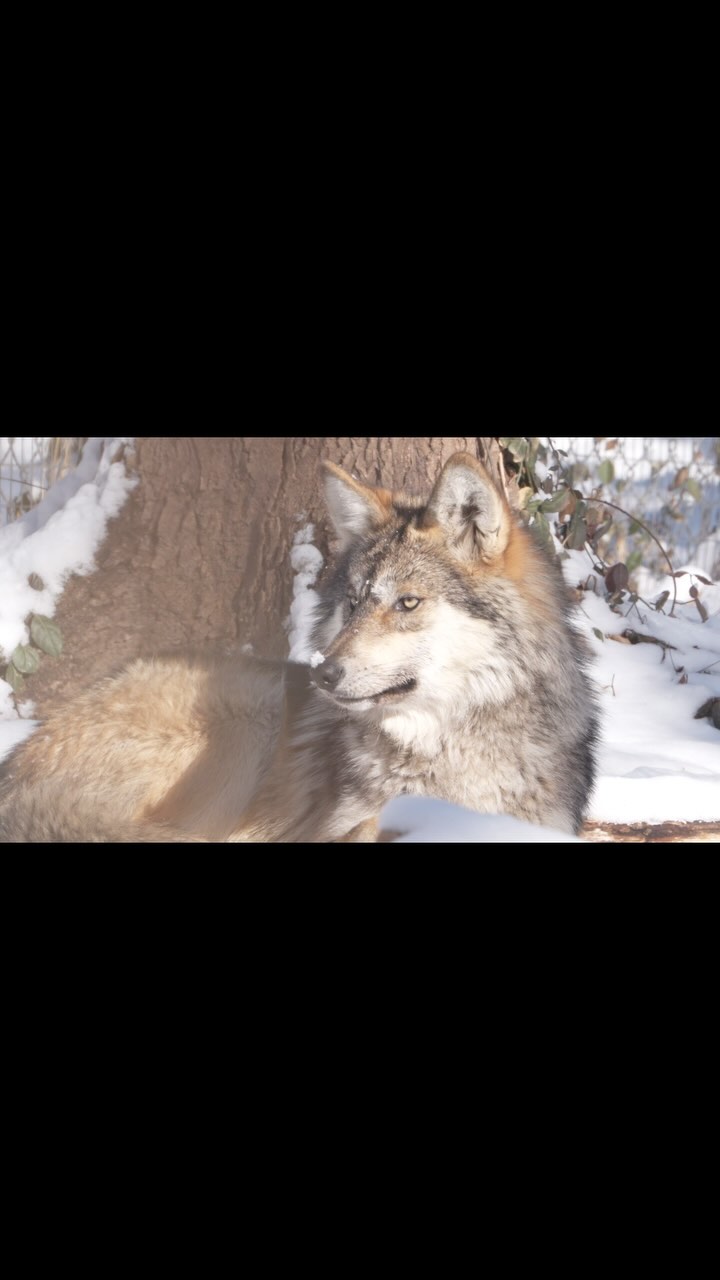- Overview of the Endangered Wolf Center’s volunteer program for wolf breeding behavior observations, highlighting its purpose and significance in conservation efforts.
- Detailed explanation of the responsibilities and requirements for the volunteering role, including the importance of observation and data collection in wildlife conservation.
- Insight into the impact and contributions of experienced volunteers like Laura and Bill, emphasizing how their efforts aid in understanding wolf breeding behaviors.
- Information regarding the timelines, commitment, and orientation meetings that prepare volunteers for supporting conservation science.
- Comprehensive discussion on the broader implications of wolf conservation, its challenges, and the essential role of volunteers in promoting wolf survival and ecosystem health.
The Eureka, Missouri-based Endangered Wolf Center is seeking new volunteers to aid in the 2025 season of wolf breeding behavior observations. This call to arms marks a pivotal opportunity in conservation efforts to assist in safeguarding endangered wolf populations. Driven by a mission to protect wildlife, the program exemplifies effective volunteer work in wildlife conservation through meticulous observation, documentation, and analysis of wolf breeding behaviors.
Volunteers like Laura and Bill have set a precedent for dedicated participation in the project over the years. Their unwavering commitment has facilitated significant contributions to the conservation strategies employed by the Endangered Wolf Center. Laura and Bill have documented critical behavioral data that assists scientists and conservationists in making informed decisions to support and preserve wolf populations. This undertaking underscores the vital connection between volunteer efforts and the broader spectrum of conservation work.
Participation in the program requires a consistent weekly commitment of two hours from late January through March, although these dates may vary based on the wolf breeding behaviors observed. These observations are crucial, serving as the groundwork for understanding the complex behaviors within wolf packs during breeding seasons. By documenting specific patterns, volunteers help piece together valuable information that might otherwise go unnoticed.
Volunteering begins with attending an orientation meeting at the Endangered Wolf Center. Offering potential volunteers two options, either Sunday, January 19th, or Saturday, January 25th, these sessions provide a thorough understanding of the roles and responsibilities involved. Attending does not obligate participation, but it equips individuals with the necessary insights to determine if the role aligns with their dedication to wildlife conservation. This approach ensures that only those genuinely interested and capable join the ranks, resulting in a team focused on impactful conservation outcomes. For practical purposes, new volunteers are required to RSVP via the provided email, enabling efficient planning and coordination.
Engaging in this volunteer work involves a direct impact on conservation efforts. By documenting and analyzing wolf behaviors, volunteers contribute to pivotal research that sheds light on how wolves interact and thrive in their natural habitats. This analysis helps optimize breeding programs and enhances our understanding of wolf pack dynamics. Through collective efforts, volunteers support the preservation of genetic diversity, which is crucial for healthy wolf populations.
The broader implications of wolf conservation stem from the essential role wolves play as apex predators in their ecosystems. Maintaining a balanced ecosystem requires predators such as wolves to control herbivore populations, thus enabling plant life to regenerate and thrive. Through volunteers’ consistent efforts in monitoring breeding behaviors, the contribution to conserving this intricate balance is significant.
Wolf conservation faces multifaceted challenges, including habitat loss, human-wolf conflict, and climate change. Volunteers play a pivotal role in addressing these challenges, leveraging their efforts to mediate the impacts and advocate for effective policies. The knowledge and data gathered through volunteer programs like those at the Endangered Wolf Center foster broader public awareness and support for wolf conservation initiatives.
For those passionate about the natural world and committed to contributing to wildlife preservation, volunteering at the Endangered Wolf Center represents an invaluable opportunity. This initiative not only impacts wolf survival but also strengthens the ecological framework that underpins viable wildlife habitats. Through this dedicated work, volunteers aid in cultivating a deeper understanding of wolf needs, promoting their survival amid ever-changing environmental conditions.
Inspiringly, the efforts by volunteers extend beyond their immediate contributions to the Endangered Wolf Center; they resonate with global conservation goals. By dedicating time and passion to wolf breeding behavior observations, individuals like Laura and Bill bring positive change to animal welfare and conservation science. This dedication underscores the importance of public engagement in achieving sustainable conservation outcomes.
Volunteering with the Endangered Wolf Center offers a rare chance to be part of a formidable team working tirelessly for the benefit of one of nature’s most captivating species. This open invitation is a clarion call to any who share a passion for wildlife and wish to make a lasting impact on conservation practices. For more information, naturally, interested parties should email the center to express interest or to RSVP for an orientation meeting.
The Endangered Wolf Center’s volunteer program for the 2025 wolf breeding behavior observations stands as a testament to human-wildlife partnerships that drive effective conservation practices. Through structured activities and focused data collection, this program exemplifies how collaborative efforts can yield transformative ecological benefits.
*****
Source Description
We’re seeking more incredible volunteers like Laura & Bill to help with our 2025 season of wolf breeding behavior observations.
In this video, learn how these long-time volunteers directly impact conservation by documenting behaviors.
This volunteer work in Eureka, MO requires a weekly 2-hour commitment from the end of January through March. This timeline is subject to change, based on the behaviors observed.
You are also required to attend one of two orientation meetings on-site at the Endangered Wolf Center:
Sunday, January 19th, 2-4 pm
Saturday, January 25th, 2-4 pm
In this orientation, we’ll go over everything you need to know to decide if this volunteer role is right for you. There is no obligation by attending orientation.
Email info@endangeredwolfcenter.org to learn more or RSVP for orientation.


